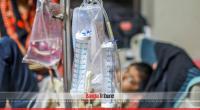 The Bangladesh government’s plans for barbed wire and guard towers around Rohingya refugee camps in Cox’s Bazar violate refugees’ rights to freedom of movement, Human Rights Watch said on Tuesday (Oct 1).
The Bangladesh government’s plans for barbed wire and guard towers around Rohingya refugee camps in Cox’s Bazar violate refugees’ rights to freedom of movement, Human Rights Watch said on Tuesday (Oct 1).
Home Minister Asaduzzaman Khan announced the plan on Sept 26, 2019, saying it was specifically ordered by Prime Minister Sheikh Hasina.
While the authorities have a duty to protect camp residents, security measures should not infringe upon basic rights and humanitarian needs. The proposed measures do not meet the standards of necessity and proportionality for restricting free movement under international human rights law, said the international humanitarian group.
“Prime Minister Sheikh Hasina opened Bangladesh’s borders to Rohingya refugees fleeing mass atrocities in Myanmar, but she now seems intent on turning the camps into essentially open-air prisons,” said Brad Adams, Asia director. “By cutting the refugees off from the outside world, the Bangladesh government risks squandering the global goodwill it had earned.”
On Sept 4, the Bangladesh Parliamentary Standing Committee on Defense recommended building a security fence around the camps “so that no one can come out of the camps and no one can enter inside the camps.” Instead of protecting the security of refugees, denying them all freedom of movement infringes on a fundamental right. It also places them at serious risk should they need to evacuate in an emergency or obtain emergency medical and other humanitarian services, an HRW release added.
The government announcement comes just a few weeks after the Bangladesh Telecommunication Regulatory Commission directed all telecommunication operators to shut down 3G and 4G services in the camps. Camp residents report that high-speed service has remained shut down since September 10. Humanitarian aid workers reported that the shutdown has seriously hampered their ability to effectively assist the nearly one million refugees.
“Denying refugees all movement and cutting off their communication is not an appropriate response to security concerns,” Adams said. “The Bangladesh government should be protecting refugees who have fled mass atrocities, not subjecting them to further abuse.”
The Rohingya, described by the UN as the world's most persecuted people, have faced heightened fears of attack since dozens were killed in communal violence in 2012.
According to Amnesty International, more than 750,000 Rohingya refugees, mostly women and children, have fled Myanmar and crossed into Bangladesh after Myanmar forces launched a crackdown on the minority Muslim community in August 2017, pushing the number of persecuted people in Bangladesh above 1.2 million.


